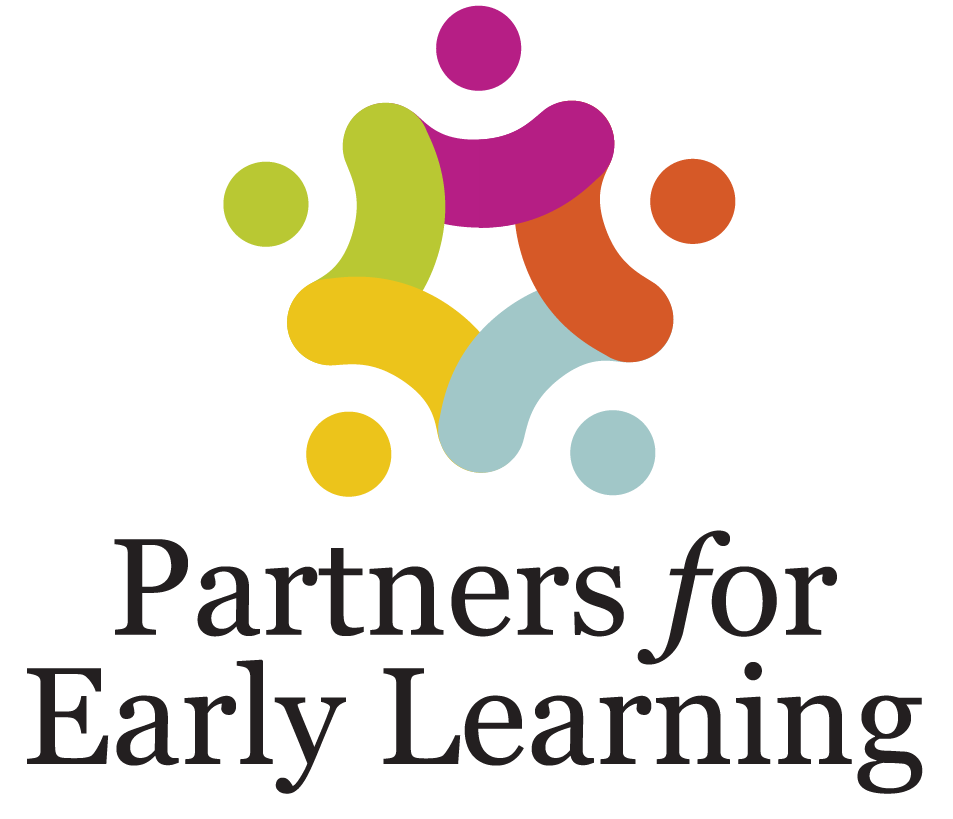Social
Social Milestones For Your Child
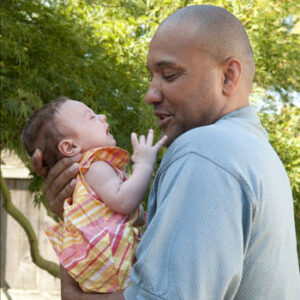
Social and Emotional: Overview (0-6 Months)
Do babies have feelings? Do they have the ability to understand the feelings of others? The surprising answer from the

Book of Jenny: How Babies Communicate
Babies try to tell us what they want or need before they can talk. Part of the fun of parenting
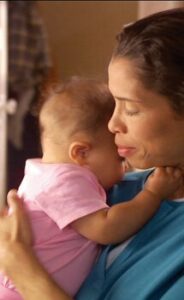
Responding to Baby (0-12 Months)
What is your baby thinking? Well, the answer is – A LOT! That’s right, from the minute your baby is
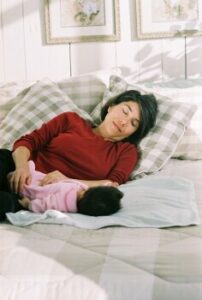
Goodnight, Baby (0-14 Months)
Will your baby ever sleep through the night? The answer is yes! Some nights you need to get up and
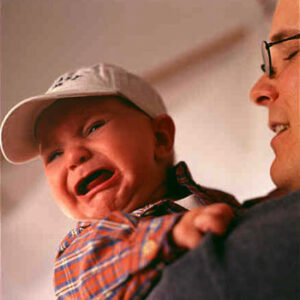
Able to Cry in Response to Another’s Cry (0-3 Months)
Babies treat the sounds of crying differently from other sounds. In one study with 34-hour-old infants, infants cried often when
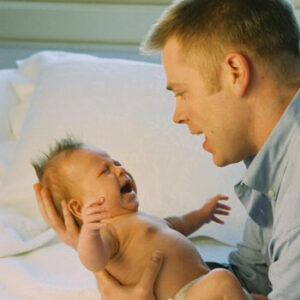
Can Display the Emotions of Distress and Sadness (0-3 Months)
When they feel “distress” or are uncomfortable or in need, even newborn babies have ways of letting their caregivers know,
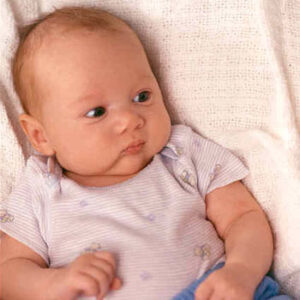
Capable of Showing Contentment and Joy (0-3 Months)
At birth, infants begin to show basic emotional behaviors. To demonstrate this, researchers carefully studied infants’ facial expressions as they
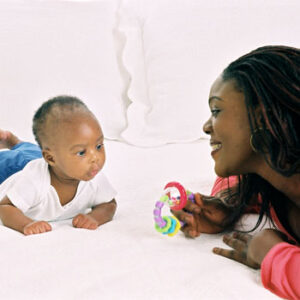
Capable of Showing Interest (0-3 Months)
At birth, infants begin to show basic emotional behaviors, including interest. Interest expressions include wide eyes, focused attention to something,
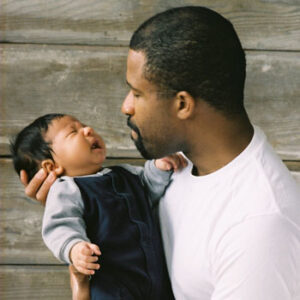
Expresses Disgust (0-3 Months)
Babies will generally show disgust in response to unpleasant tastes. Disgust expressions, which begin in the first few months, can
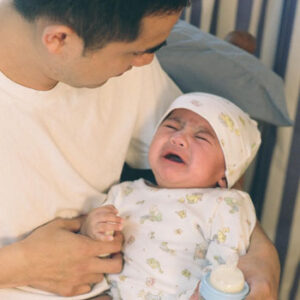
Shows Frustration and Anger (0-4 Months)
Very young babies demonstrate frustration when they are struggling to complete a developmentally difficult task or when they are prevented
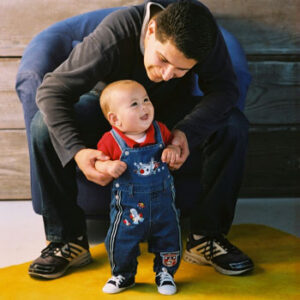
Capable of Imitating Emotional Facial Expressions of Others (0-5 Months)
Soon after birth, babies are already capable of imitating the emotional expressions they see on the faces of others. In
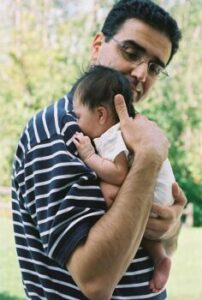
Born to Feel (0-6 Months)
Learn what a sad face means It’s a beautiful summer day. Dad and his 10-week-old son Ryan are relaxing on
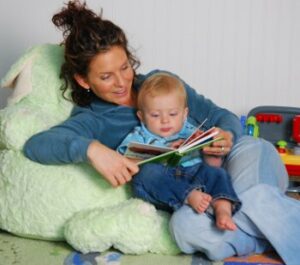
Reading to Babies (0-6 Months)
It’s never too early to begin reading to your child. Reading together not only helps your child learn the sounds
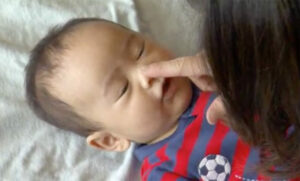
Recognizing Baby Cues (0-9 Months)
In your first 6 months together, getting to know your baby means learning to read their cues. Some cues can
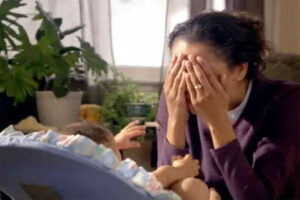
Bubble Talk: Why Caring Responses Make a Difference (1-12 Month)
Babies communicate with their parents and caregivers in many ways. Responding to your baby’s cues positively will help you create
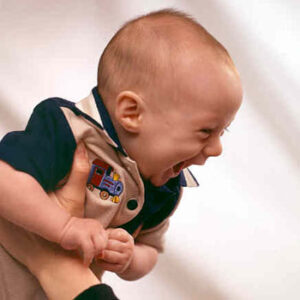
Begins to Develop Social Smile (1-3 Months)
Babies are capable of smiling at birth. At first, these expressions are not truly “smiles” in response to social interactions
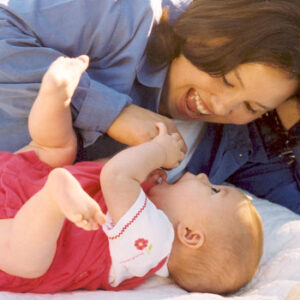
Enjoys Social Play with Caregivers (4-7 Months)
Infants are interested in human faces shortly after birth, and they take huge steps in their abilities to interact with
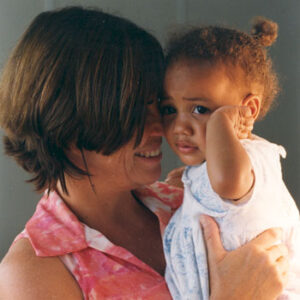
Social and Emotional: Overview (6-12 Months)
Are you my mother? Between 6 and 12 months, most babies show signs of fear around strangers. They also are
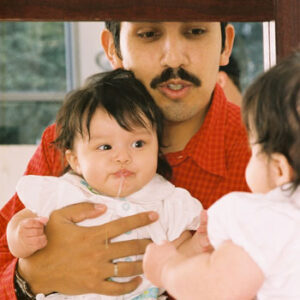
Becomes Interested in Mirror Images (5-7 Months)
Visual awareness increases during months 4 through 7, and babies begin to notice new aspects of their environment. During this
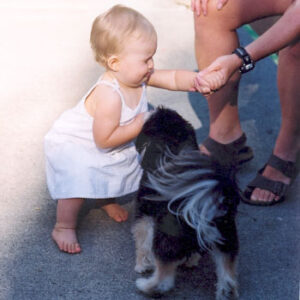
Begins to Show the Emotion of Fear (6-8 Months)
Around 6 to 8 months, most children begin to show fearfulness. Fear develops later than other “basic” emotions because certain
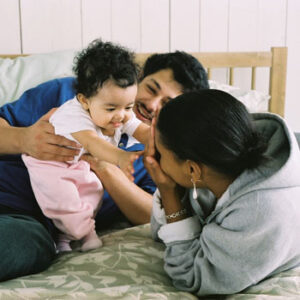
Develops Stronger Preferences for People and Toys (7-12 Months)
Between 8 and 12 months, babies begin displaying stronger preferences for certain people and select their favorite toys, which they

Imitates People during Play (8-12 Months)
Although babies are capable of imitating some facial expressions at birth, they become increasingly able to copy adult actions and
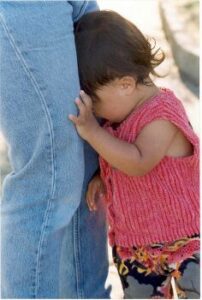
Becomes Increasingly Shy or Anxious with Strangers (8-13 Months)
At around 7 to 8 months, most children begin to show fearfulness around unfamiliar people. This is called stranger anxiety
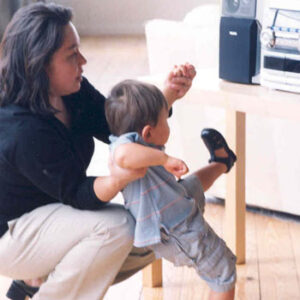
Begins to Test Parental Responses to Behavior (8-15 Months)
Babies are intensely curious about parental responses to their behavior. At this young age, babies begin to do things around

Begins to Look to Others’ Emotions before Acting, Termed “Social Referencing” (9-15 Months)
Starting around 8 to 10 months, children begin to look at the facial expressions of others to help themselves decide
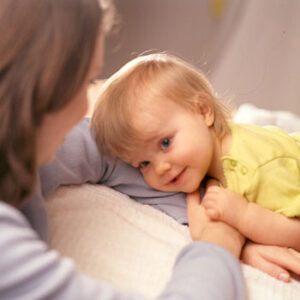
Prefers Primary Caregiver above All Others (9-15 Months)
As babies approach their second year of life, they show sustained preferences for the mother and/or regular caregiver above all
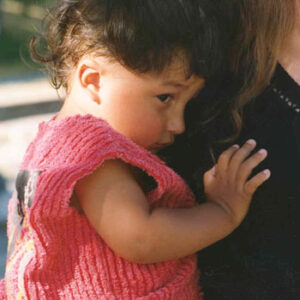
Separation Anxiety Increases (10-18 Months)
Around 6 to 8 months, most children begin to show distress when they are away from their primary caregivers. This
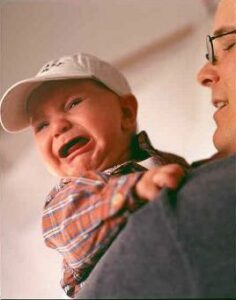
I Want My Mommy
I don’t know you! Scotty is eight months old, and he’s a cheerful and outgoing baby. He always smiles at
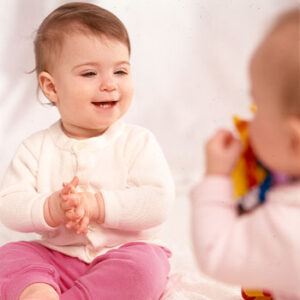
Social and Emotional: Overview (12-24 Months)
In their second year, children take a big step in self-awareness. They begin to understand that they are different from
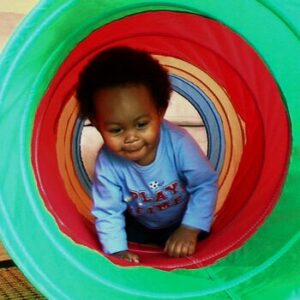
Give Your Child Wings
Why is it important to build a connection? The world can be a very scary place for a toddler unless

I’m Embarrassed
I’m not too young to be embarrassed Sammy is 20 months old, and he just got a new outfit from
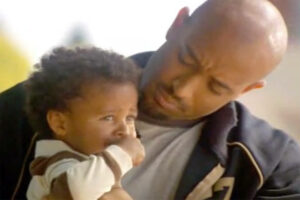
Safari: Making Your Child Feel Secure
Your toddler wants to be independent, but the world can be a scary place. Having you close gives him the

It’s a Stressful Life
How do you teach your child to handle everyday stress? Let’s face it – stress is a part of life.
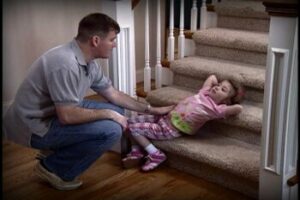
Four Parenting Styles
When dealing with the up-and-down world of emotions, your children naturally take their cues from you. That’s why it’s helpful
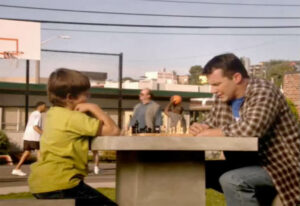
Learning from Dad: How Children Feel About Themselves
Your toddler wants to be independent, but the world can be a scary place. Having you close gives him the
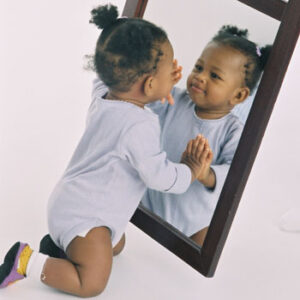
Baby Begins to Develop Self-Awareness (15-24 Months)
Sometime between 15 and 24 months, children take a large step in self-awareness. In an experiment known as the “rouge
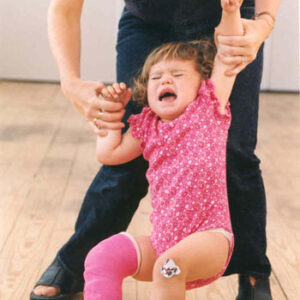
Begins to Show Defiant Behavior (16-24 Months)
As children grow closer to their second birthdays, they take big steps in learning about the desires and feelings of
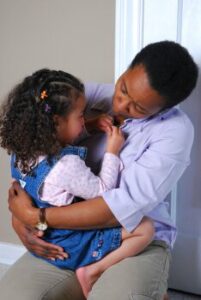
Learning from Dad
Handling big emotions. Tommy: “I hated striking out!”Dad: “I know, but you did a good job of handling your emotion.”Tommy: “It wasn’t easy!”
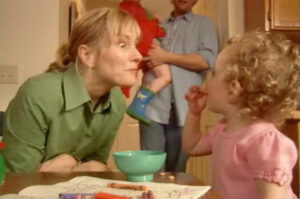
Rough Day: How Children Learn about Stress
Let’s face it, stress is a part of life. And modern life seems to present us with more of it
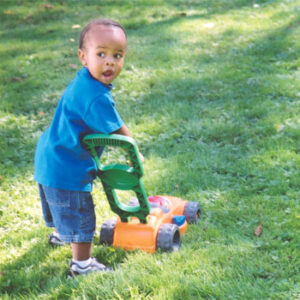
Demonstrates Increasing Independence from Parents and Caregivers (17-26 Months)
Throughout the second year, toddlers will constantly swing back and forth between fierce independence and a desire to cling to
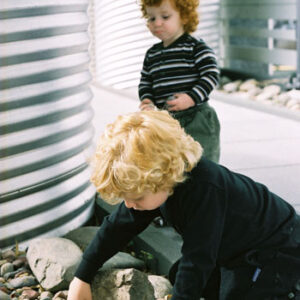
Starts to Display Feelings of Envy (18-24 Months)
Between 15 and 24 months, children take big steps in self-awareness and become more aware of themselves as individuals. They
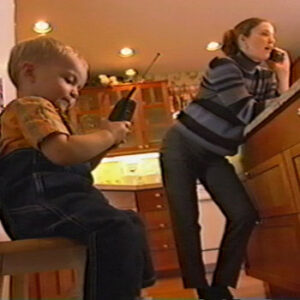
Imitates the Behavior of Others, Especially Adults and Older Children (18-27 Months)
Imitation is a powerful way toddlers learn from others. Instead of simply manipulating household objects as they did during the first
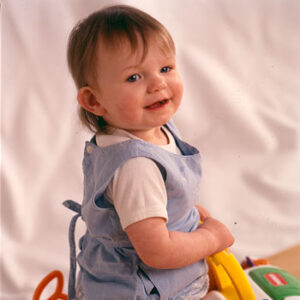
Separation Anxiety Fades (19-24 Months)
Around 6 to 8 months, most children begin to show distress when they are away from their primary caregivers. Children
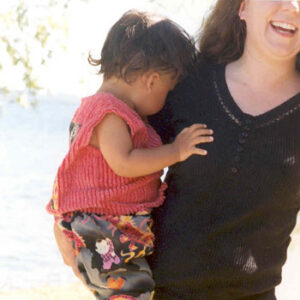
Begins to Show the Emotion of Embarrassment (19-25 Months)
Before they’re about 15 months old, children don’t show the signs of embarrassment–the blushing, smiling, and nervous touching that often
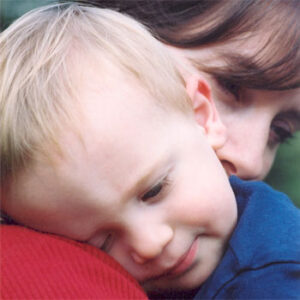
Shows Evidence of Empathy (20-24 Months)
During the second year, children begin to show empathy to others who are upset or hurt. By 18 months, children
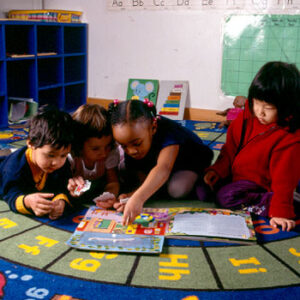
Social and Emotional: Overview (2-3 Years)
New feelings develop in the third year as children become more aware of the expectations and rules around them. Children
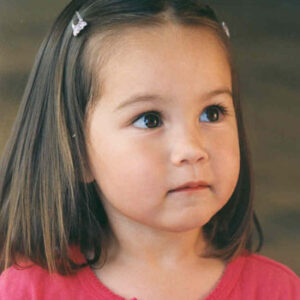
Begins to View Own Behavior against a Standard (24-35 Months)
Sometime between years 2 and 3, children gain the ability to evaluate their own behavior against a standard. As children
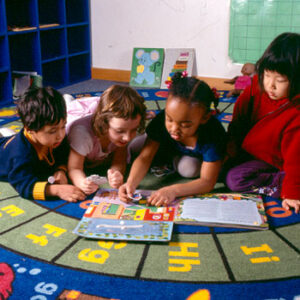
Can Take Turns in Games (24-35 Months)
At age 3, children are becoming more independent and more secure. When children learn about taking turns and cooperation from the
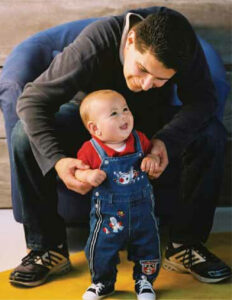
All About Praise
Is there a right way to praise a young child? Is there such a thing as too much praise? Researchers
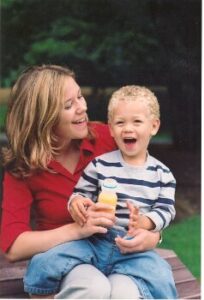
Recognizing Emotions
Connecting through giggles and tears. Emotional moments, whether happy, sad, or fearful, are when kids naturally turn to you for
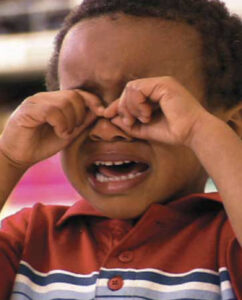
Tantrums Happen
Here Comes a Tantrum! When you least expect it…Tantrums happen! No matter how hard you try to understand your child’s

Tantrums Happen: Connecting during Emotional Moments
Temper tantrums are a normal and very common part of growing up. Ignore those eye-rolling critics. Your child’s extreme display

Life with Baby Brother
New Baby is Home! When a new baby arrives, life changes for everyone. These changes are especially big for an
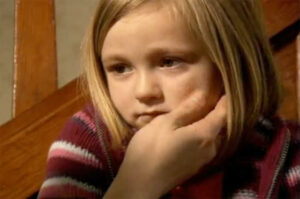
Morning Madness: Valuing a Child’s Emotions
Learning how to communicate and handle feelings are big skills for young children. Sometimes those feelings are hard to recognize,
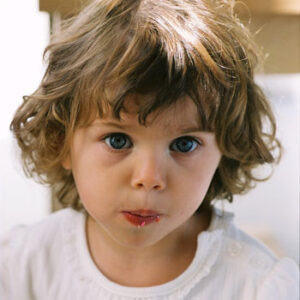
May Experience and Express Guilty Feelings (27-36 Months)
Sometime between years 2 and 3, children gain the ability to evaluate their own behavior against a standard. As children
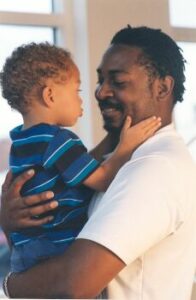
Are You Okay, Daddy?
Big feelings from little ones Some days, it just doesn’t pay to be an adult. Your boss gives you another
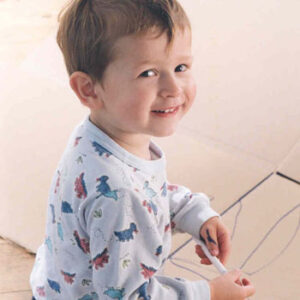
Shows Evidence of the Emotion of Pride (30-36 Months)
Sometime between years 2 and 3, children gain the ability to evaluate their own behavior against a standard. As children
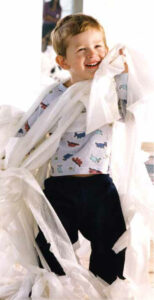
All About Play
Is there a link between how children play and how they learn? Decades of research show that play is important
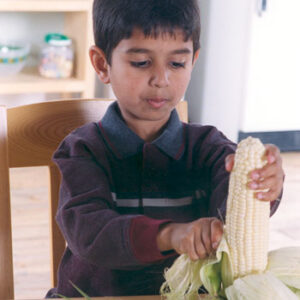
Social and Emotional: Overview (3-5 Years)
“I want to do it myself!” Children are becoming increasingly independent between ages 3 and 5. They are also taking
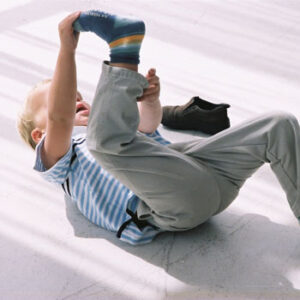
Capable of Dressing and Undressing Self (36-48 Months)
Coordination and the ability to use their hands are almost fully developed by age 4, and preschoolers are gradually learning
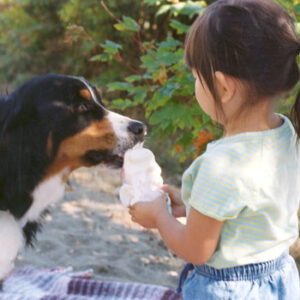
Demonstrates an Increasing Ability to Share (36-48 Months)
Although sharing is a foreign concept for toddlers, many preschoolers are gaining an understanding of and appreciation for the feelings
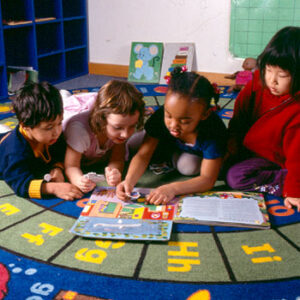
Cooperates More with Other Children (36-50 Months)
Preschoolers enjoy the company of other children and interact with them instead of playing side by side like they did
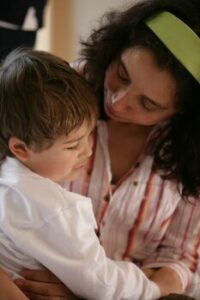
Five Steps of Emotion Coaching
Emotions…we all have them. Everything we do and everything we learn is shaped in some way by the way we
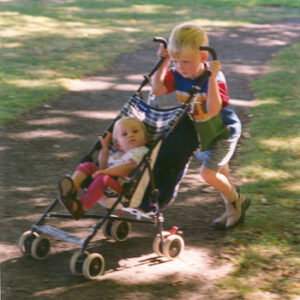
Shows Increasingly Independent Behaviors (36-51 Months)
Preschoolers are becoming increasingly independent and want to make more of their own choices. Eager to prove how capable and
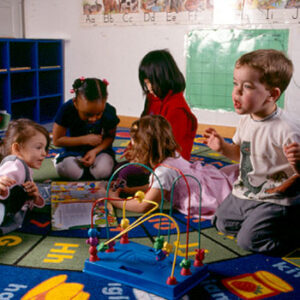
Begins to Negotiate Solutions to Conflicts (38-48 Months)
As children gain an understanding of and appreciation for the feelings and actions of others, they will gradually stop competing
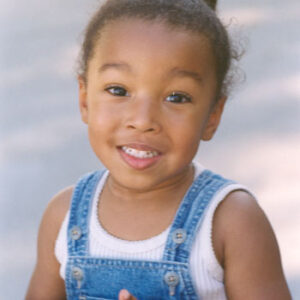
Views Self as a Whole Person–Body, Mind, and Feelings (40-49 Months)
Three-year-olds are gradually learning to use pronouns such as “I,” “me,” “mine,” and “you.” Although they’re still struggling to comprehend
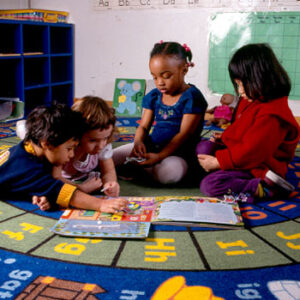
More Likely to Agree to Rules (48-59 Months)
Children still have a simplified sense of morality as they approach their fifth birthdays, but they are exploring the concepts

Wants to Please Friends (49-59 Months)
For 4-year-olds, friends aren’t just playmates – they’re examples of different behaviors, values, and ways of life. Preschoolers want to invite
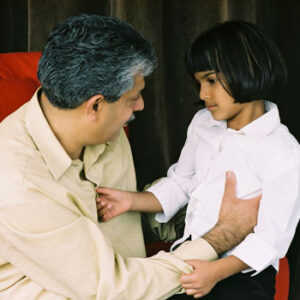
Sometimes Demanding, Sometimes Eagerly Cooperative (50-60 Months)
Preschoolers gain more control over their unpredictable emotional responses by age 4, but they’re still struggling to manage their feelings
